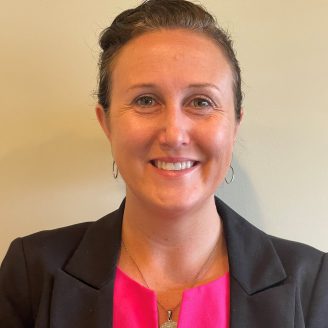
October 2, 2023
A large majority of adults feel state governments should not be allowed to restrict what is taught at state-funded colleges and universities and most do not want university administrators interfering with what professors are teaching in the classroom. But public attitudes toward freedom of expression on the country’s university campuses are complex. A majority also say, for example, that professors should be barred from inviting academic speakers to campus who have been accused of offensive speech in the past and say professors should not be allowed to promote religious or political causes or to express views against marginalized groups while on campus.
That’s according to a new poll from the University of Chicago Forum for Free Inquiry and Expression and The Associated Press-NORC Center for Public Affairs Research which also finds the public perceives unequal freedom of expression for different groups on college campuses and believes that colleges and universities vary in their effectiveness creating respectful and inclusive environments for different groups. In particular, people are least likely to believe conservatives are able to freely express themselves or to be included and respected on campuses. Opinions among adults are almost evenly divided regarding whether people being allowed to say harmful or misleading things or prevented from saying what they want is a bigger problem on college and university campuses these days.
People are more supportive of freedom of expression across a number of scenarios for students compared to faculty. But there are still limits. A majority do not think students should be allowed to express anti-LGBTQ, racist, or sexist views on campus, for example. Nearly all adults are supportive of students engaging in peaceful and non-disruptive protests against invited speakers who have views they find offensive, but there is almost no support for disruptive tactics that prevent the speaker from communicating to the audience or prevent audiences from attending.
When it comes to the primary purposes of universities, people most often cite functions like preparing students for careers, advancing knowledge and innovation, and teaching critical thinking. Roughly two-thirds of the public also consider fostering respectful learning environments and supporting the free exchange of ideas as primary purposes. Advancing equity and inclusion as well as fostering a sense of community ranks lowest among what people see as higher education’s primary purpose. And roughly 6 in 10 adults think professors should be allowed to conduct research on topics that some students might find offensive and about half find it acceptable for them to teach polarizing ideas in courses.
The nationwide poll was conducted by the University of Chicago and The Associated Press-NORC Center for Public Affairs Research from September 7 to 11, 2023, using AmeriSpeak®, the probability-based panel of NORC at the University of Chicago. Online and telephone interviews using landlines and cell phones were conducted with 1,095 adults. The margin of sampling error is +/- 4.0 percentage points.
Suggested Citation: The AP-NORC Center for Public Affairs Research. (September, 2023). “Public perceptions of freedom of expression on university campuses paints a complex picture” https://apnorc.org/projects/public-perceptions-of-freedom-of-expression-on-university-campuses-paints-a-complex-picture







